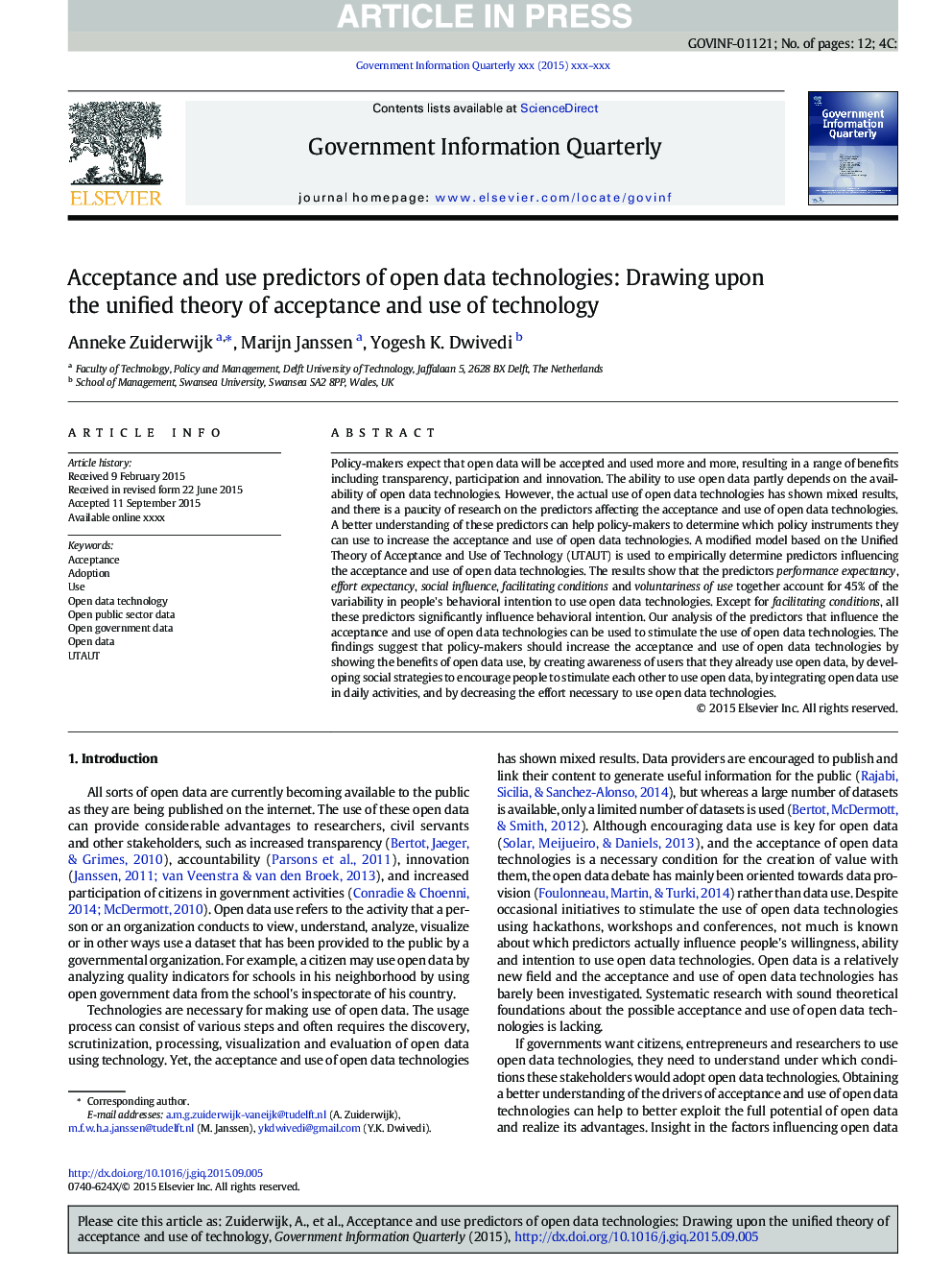| Article ID | Journal | Published Year | Pages | File Type |
|---|---|---|---|---|
| 10495621 | Government Information Quarterly | 2015 | 12 Pages |
Abstract
Policy-makers expect that open data will be accepted and used more and more, resulting in a range of benefits including transparency, participation and innovation. The ability to use open data partly depends on the availability of open data technologies. However, the actual use of open data technologies has shown mixed results, and there is a paucity of research on the predictors affecting the acceptance and use of open data technologies. A better understanding of these predictors can help policy-makers to determine which policy instruments they can use to increase the acceptance and use of open data technologies. A modified model based on the Unified Theory of Acceptance and Use of Technology (UTAUT) is used to empirically determine predictors influencing the acceptance and use of open data technologies. The results show that the predictors performanceexpectancy, effort expectancy, social influence, facilitating conditions and voluntariness of use together account for 45% of the variability in people's behavioral intention to use open data technologies. Except for facilitating conditions, all these predictors significantly influence behavioral intention. Our analysis of the predictors that influence the acceptance and use of open data technologies can be used to stimulate the use of open data technologies. The findings suggest that policy-makers should increase the acceptance and use of open data technologies by showing the benefits of open data use, by creating awareness of users that they already use open data, by developing social strategies to encourage people to stimulate each other to use open data, by integrating open data use in daily activities, and by decreasing the effort necessary to use open data technologies.
Related Topics
Social Sciences and Humanities
Business, Management and Accounting
Business, Management and Accounting (General)
Authors
Anneke Zuiderwijk, Marijn Janssen, Yogesh K. Dwivedi,
